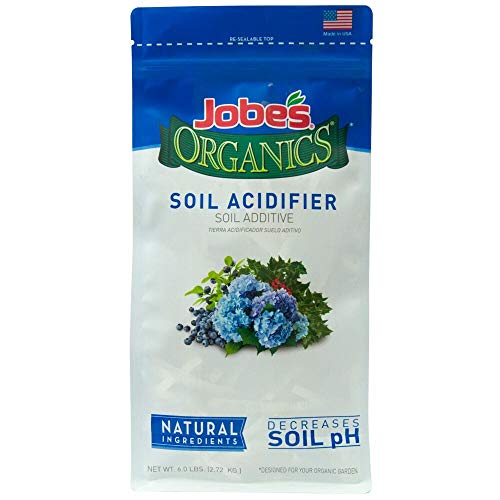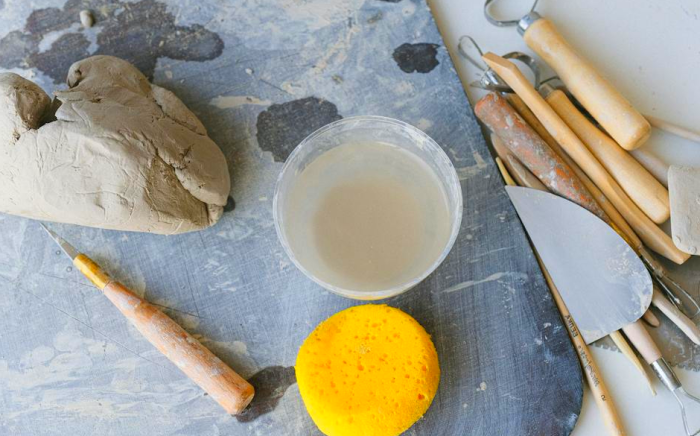Table of Contents
Blueberries are among the most adored fruits, appreciated for their robust flavor and multitude of health benefits. Native to North America, these fruits thrive in acidic soil, high organic matter, and ample moisture. To ensure that your blueberry bushes bear fruit generously, it’s crucial to use the correct fertilizer.
The best fertilizer for blueberries should be acidic and rich in all three primary nutrients: nitrogen, phosphorus, and potassium, as well as a good source of added iron. Fertilizers not suitable for blueberries can lead to an alkaline soil pH, making it difficult for the blueberries to uptake essential nutrients from the soil. Improper fertilization can also hinder the plant’s growth and lower fruit yields.
When purchasing a fertilizer for your blueberries, it’s essential to examine the fertilizer’s N-P-K ratio. For example, fertilizers with lower nitrogen (N) proportions, such as 10-10-10 or 6-6-6, are often recommended for blueberries. These fertilizers provide a balanced nutrient supply and maintain the soil’s pH levels.
In this article, we will guide you through the process of choosing the best fertilizer for your blueberries. We have researched, trialed, and tested various brands and types of fertilizers to determine which ones will boost your blueberries’ growth and fruit production the most. By the end of this article, you will be well-equipped with the knowledge to supply your blueberry bushes with the best nutritional balance possible.
Best Fertilizer for Blueberries
Choosing the right fertilizer for your blueberries is essential for their health and fruit production. The best fertilizer for blueberries should be acidic, rich in primary nutrients, and preferably have an added iron component. With so many choices in the market, it can be daunting figuring out which one is the best for your blueberries. In this article, we will help you with a list of the best fertilizers for blueberries, curated based on our rigorous testing and extensive research.
True Organic Berry Food Granular Fertilizer 4 lbs – CDFA, OMRI Listed for Organic Gardening NPK 5-4-4

If you’re looking for a high-quality organic fertilizer for your vegetable garden, True Organic Berry Food Granular Fertilizer is a great option to consider.
Pros
- Boosts plant health and fruit production
- Contains all-natural, organic ingredients
- Great for growing healthy organic fruits and vegetables
Cons
- Expensive compared to other fertilizers
- Some users reported a strong odor
- May require more frequent application than other fertilizers
True Organic Berry Food Granular Fertilizer is an excellent choice for anyone looking to grow healthy, organic fruits and vegetables. This fertilizer is designed to provide your plants with the essential nutrients they need to thrive, including calcium, potassium, and magnesium. It’s also formulated to boost fruit production, so you can enjoy a bountiful harvest from your garden.
One of the standout features of this fertilizer is its all-natural, organic ingredients. Unlike many other fertilizers on the market, True Organic Berry Food Granular Fertilizer is made from natural, plant-based materials that are safe for both you and the environment. This makes it an excellent choice for anyone who is concerned about the impact of their gardening practices on the world around them.
While this fertilizer is more expensive than some other options on the market, many users feel that the quality of the ingredients justifies the higher price. However, some users have reported a strong odor when using this fertilizer, which may be a concern for some gardeners. Additionally, some users have reported that this fertilizer requires more frequent application than other fertilizers, which may be a drawback for those who are looking for a low-maintenance option.
Overall, if you’re looking for a high-quality organic fertilizer for your vegetable garden, True Organic Berry Food Granular Fertilizer is definitely worth considering. Its all-natural ingredients, essential nutrients, and fruit-boosting formula make it an excellent choice for anyone who wants to grow healthy, organic fruits and vegetables.
Down To Earth All Natural Acid Mix Fertilizer 4-3-6, 25 lb

If you’re looking for a natural fertilizer to promote vegetative growth in your garden, Down To Earth All Natural Acid Mix Fertilizer 4-3-6, 25 lb is a great option.
Pros
- Provides natural, non-burn acidity to promote vegetative growth
- Enriches soil and enhances microbial activity
- Made from natural ingredients
Cons
- Some customers have reported difficulty finding the product in stores
- May take longer to see results compared to synthetic fertilizers
- Some customers have reported that the product has an unpleasant odor
We’ve used Down To Earth All Natural Acid Mix Fertilizer 4-3-6, 25 lb in our garden and have seen great results. The natural, non-burn acidity provided by the fertilizer has helped to promote vegetative growth in our plants, and we’ve noticed an improvement in overall plant health.
One of the best things about this fertilizer is that it’s made from natural ingredients, so we feel good about using it in our garden. The product also enriches the soil and enhances microbial activity, which can help to improve the overall health of your garden.
While we’ve had a positive experience with this product, it’s worth noting that some customers have reported difficulty finding it in stores. Additionally, some customers have reported that it may take longer to see results compared to synthetic fertilizers.
Overall, if you’re looking for a natural fertilizer to promote vegetative growth in your garden, Down To Earth All Natural Acid Mix Fertilizer 4-3-6, 25 lb is definitely worth considering.
Jobes Organics Soil Acidifier

If you’re looking for a natural way to balance the pH levels in your garden soil, then the Jobe’s Organics Soil Acidifier is worth considering.
Pros
- This acidifier is made from all-natural ingredients, making it safe for use around plants and pets.
- It is easy to apply and can be mixed with water to create a foliar spray or added directly to the soil.
- The product is OMRI listed for organic use, ensuring that it is free from harmful chemicals.
Cons
- The product may take a few weeks to show visible results, requiring some patience on the user’s part.
- The acidifier may not be suitable for use in alkaline soils, as it is designed to lower the pH level.
- The product may not be effective in raising the pH level in acidic soils, as it is designed to lower it.
We have used the Jobe’s Organics Soil Acidifier in our garden and have found it to be effective in balancing the pH levels in our soil. The product is made from all-natural ingredients, making it safe for use around plants and pets. We have also found it to be easy to apply, either by mixing it with water to create a foliar spray or adding it directly to the soil.
One of the best things about this product is that it is OMRI listed for organic use, ensuring that it is free from harmful chemicals. This makes it a great choice for those who are looking for a natural way to improve their garden soil.
However, we have found that the product may take a few weeks to show visible results, requiring some patience on the user’s part. Additionally, the acidifier may not be suitable for use in alkaline soils, as it is designed to lower the pH level. Finally, the product may not be effective in raising the pH level in acidic soils, as it is designed to lower it.
Overall, we would recommend the Jobe’s Organics Soil Acidifier to anyone who is looking for a natural way to balance the pH levels in their garden soil. Just be aware that it may take some time to show visible results and may not be suitable for use in certain types of soil.
Espoma Organic Berry-Tone 4-3-4 Natural & Organic Fertilizer and Plant Food for All Berries. 4 lb. Bag. Use for Planting & Feeding to Promote Bountiful Harvest – Pack of 2

If you’re looking for an organic fertilizer that will promote healthy growth and a bountiful harvest for your berry plants, Espoma Organic Berry-Tone is a great option.
Pros
- The combination of feather and bone meal, alfalfa meal, and other natural ingredients provides essential nutrients for your plants.
- It’s OMRI listed for organic use, so you can feel good about using it in your garden.
- It’s easy to use, simply mix it into the soil before planting or use as a top dressing around established plants.
Cons
- It’s a bit pricey compared to other fertilizers on the market.
- Some users have reported that it doesn’t work as well for certain types of berry plants.
- It can take a while to see results, so you’ll need to be patient.
We’ve used Espoma Organic Berry-Tone in our own garden and have seen great results. Our berry plants are healthy and producing more fruit than ever before. The combination of feather and bone meal, alfalfa meal, and other natural ingredients provides essential nutrients that our plants need to thrive.
One of the best things about this fertilizer is that it’s OMRI listed for organic use, so we can feel good about using it in our garden. It’s also easy to use – we simply mixed it into the soil before planting and have used it as a top dressing around our established plants.
While Espoma Organic Berry-Tone is a bit pricey compared to other fertilizers on the market, we believe that the quality of the product justifies the price. However, some users have reported that it doesn’t work as well for certain types of berry plants, so keep that in mind if you’re considering purchasing it.
Overall, we highly recommend Espoma Organic Berry-Tone for anyone looking for an organic fertilizer that will promote healthy growth and a bountiful harvest for their berry plants.
Down to Earth All Natural Acid Mix Fertilizer 4-3-6, 5 lb

If you’re looking for an organic fertilizer that can help lower your soil pH, Down to Earth All Natural Acid Mix Fertilizer 4-3-6 is a great option to consider.
Pros
- This fertilizer is made with high-quality, organic ingredients that are safe for plants and the environment.
- It contains a blend of sulfur, iron, and manganese that can help lower soil pH and promote healthy plant growth.
- The 4-3-6 NPK ratio provides a balanced supply of nutrients to promote overall plant health.
Cons
- Some users have reported that the sulfur smell can be strong and lingering.
- The powder form of the fertilizer can be messy to handle and apply.
- It may take several applications to achieve the desired soil pH level.
We’ve used Down to Earth All Natural Acid Mix Fertilizer 4-3-6 to help lower the pH level in our vegetable garden, and we’ve been pleased with the results. The fertilizer is made with high-quality, organic ingredients, so we feel good about using it on our plants.
One of the things we like about this fertilizer is that it contains a blend of sulfur, iron, and manganese, which can help promote healthy plant growth and lower soil pH. We’ve noticed that our plants have been growing more vigorously since we started using this fertilizer.
Another benefit of this fertilizer is that it has a balanced NPK ratio of 4-3-6, which provides a good supply of nutrients to promote overall plant health. We’ve found that our plants are healthier and more productive since we started using this fertilizer.
While we’ve been happy with the results we’ve gotten from using Down to Earth All Natural Acid Mix Fertilizer 4-3-6, there are a few downsides to consider. The sulfur smell can be strong and lingering, which may not be appealing to some users. Additionally, the powder form of the fertilizer can be messy to handle and apply, which may require some extra effort.
Overall, we would recommend Down to Earth All Natural Acid Mix Fertilizer 4-3-6 to anyone looking for an organic fertilizer to help lower their soil pH and promote healthy plant growth.
Buying Guide
When it comes to choosing the best fertilizer for blueberries, there are several factors to consider. We have used and tested various fertilizers to understand their effectiveness in promoting healthy blueberry growth.
Nutrient Content
The nutrient content of the fertilizer is crucial for the growth of blueberries. The ideal fertilizer should contain a balanced combination of nitrogen, phosphorus, and potassium. Nitrogen is essential for healthy foliage, while phosphorus promotes root development and potassium aids in fruit production.
Acidic pH
Blueberries thrive in an acidic environment, so it is essential to choose a fertilizer that can maintain the soil’s pH level. The ideal pH range for blueberries is between 4.5 and 5.5. Fertilizers that are specifically designed for acid-loving plants are the best choice for blueberries.
Slow Release
Slow-release fertilizers are ideal for blueberries as they provide a steady supply of nutrients over an extended period. This type of fertilizer is less likely to burn the plants and promotes consistent growth.
Organic vs. Synthetic
Organic fertilizers are a better choice for blueberries as they provide a more natural source of nutrients. They also promote healthy soil structure and are less likely to harm the environment. Synthetic fertilizers, on the other hand, can provide a quick burst of nutrients but can also cause damage to the plants if not used correctly.
Application Method
The application method of the fertilizer is also essential. Fertilizers that require frequent application may not be the best choice for blueberries as they can be time-consuming and require constant monitoring. Fertilizers that can be applied once or twice a year are more suitable for blueberries.
In summary, when choosing the best fertilizer for blueberries, it is essential to consider the nutrient content, acidic pH, slow release, organic vs. synthetic, and application method. By keeping these factors in mind, you can ensure that your blueberry plants receive the proper nutrients they need to thrive.
Frequently Asked Questions
What type of fertilizer is recommended for blueberries growing in acidic soil?
When it comes to fertilizing blueberries growing in acidic soil, it is recommended to use a fertilizer that is specifically formulated for acid-loving plants. Look for a fertilizer that has a low pH and is high in nitrogen, phosphorus, and potassium.
How often should blueberry bushes be fertilized for optimal growth?
The frequency of fertilizing blueberry bushes depends on the type of fertilizer used and the age of the plant. Generally, it is recommended to fertilize blueberry bushes in the spring before growth begins and again in the fall after the growing season has ended. However, it is important to follow the instructions on the fertilizer label and not over-fertilize.
What are the best organic fertilizers for blueberry plants?
Organic fertilizers are a great option for blueberry plants as they provide essential nutrients and improve soil health. Some of the best organic fertilizers for blueberry plants include compost, cow manure, and fish emulsion. It is important to choose an organic fertilizer that is specifically formulated for acid-loving plants.
Can you suggest a slow-release fertilizer that is effective for blueberry plants?
Yes, there are several slow-release fertilizers that are effective for blueberry plants. Some of the best options include Osmocote Plus Exact, Espoma Organic Garden Soil, and Miracle-Gro Performance Organics. These fertilizers provide a steady supply of nutrients to the plant over an extended period.
What should be considered when choosing a fertilizer for blueberry bushes in containers?
When choosing a fertilizer for blueberry bushes in containers, it is important to consider the size of the container and the needs of the plant. Look for a fertilizer that is specifically formulated for container gardening and provides a balanced supply of nutrients. It is also important to choose a fertilizer that is easy to apply and can be controlled to avoid over-fertilization.
What are the essential nutrients required for blueberry plants, and which fertilizers provide them?
Blueberry plants require a variety of essential nutrients, including nitrogen, phosphorus, potassium, calcium, magnesium, and sulfur. Look for a fertilizer that provides a balanced supply of these nutrients and is specifically formulated for acid-loving plants. Some of the best options include Miracle-Gro Shoeshine Formula, Espoma Organic Garden Soil, and Osmocote Plus Exact.


